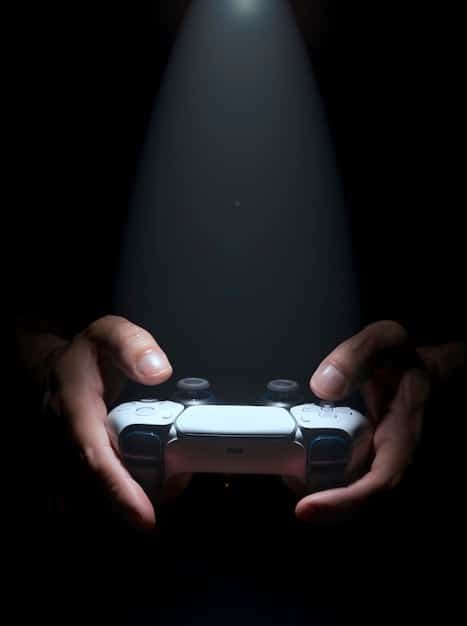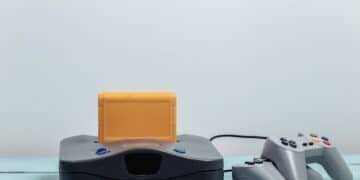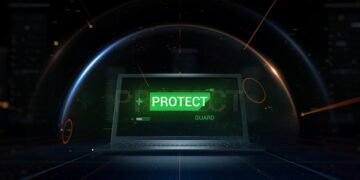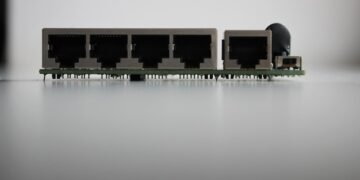PlayStation Network Security: 7 Tips to Protect Your Account

Protecting your PlayStation Network (PSN) account is crucial in today’s digital world, as account breaches can lead to significant personal and financial losses; this guide covers seven essential tips to enhance your PSN security and defend against potential hackers.
Your PlayStation Network (PSN) account is a gateway to a world of gaming, entertainment, and social interaction. But that also makes it a prime target for hackers. PlayStation Network Security: Protect Your Account from Hackers with These 7 Tips can help you keep your account safe and secure.
Understanding the Risks to Your PlayStation Network Account
Before diving into the tips, it’s essential to understand the risks associated with inadequate PlayStation Network security. Hackers constantly develop new tactics to compromise accounts, and being aware of these threats is the first step in protecting yourself.
Common Hacking Tactics
Hackers employ various methods to gain unauthorized access to PSN accounts. These include phishing scams, brute-force attacks, and exploiting known vulnerabilities in PSN’s security protocols.
Phishing scams often involve deceptive emails or messages that trick users into revealing their login credentials. Brute-force attacks use automated software to guess passwords, while exploiting vulnerabilities targets weaknesses in the network’s defenses.
Potential Consequences of a Hacked Account
The consequences of a compromised PSN account can be severe. Hackers may gain access to your personal information, including your real name, address, and payment details. They could also make unauthorized purchases, tamper with your game data, or even hold your account for ransom.
- Financial Loss: Unauthorized purchases can quickly drain your funds.
- Identity Theft: Stolen personal information can be used for identity theft.
- Loss of Gaming Data: Game progress, purchases, and achievements can be lost or corrupted.
- Reputation Damage: A hacked account could be used to spread malware or spam to your friends and contacts.
Understanding these risks should underscore the importance of taking proactive steps to secure your PSN account. Let’s explore the tips that can help you do just that.

Tip 1: Enable Two-Factor Authentication (2FA)
One of the most effective ways to enhance your PlayStation Network security is by enabling Two-Factor Authentication (2FA). This adds an extra layer of protection by requiring a second verification method in addition to your password.
What is Two-Factor Authentication?
2FA works by requiring you to enter a unique code generated by an authenticator app or sent to your mobile phone each time you log in on a new device. This means that even if a hacker manages to obtain your password, they would still need access to your second factor to gain access to your account.
How to Enable 2FA on PSN
Enabling 2FA on your PSN account is a straightforward process. Here’s how to set it up:
- Go to the PlayStation Network website or your PlayStation console.
- Sign in to your account.
- Navigate to the security settings.
- Choose “Two-Step Verification” or “2FA.”
- Follow the on-screen instructions to set up authentication via an authenticator app or SMS code.
After enabling 2FA, make sure to keep your recovery codes in a safe place. These codes can be used to regain access to your account if you lose access to your primary authentication method.
Enabling 2FA significantly reduces the risk of unauthorized access, providing an essential layer of security for your PSN account.
Tip 2: Create a Strong and Unique Password
Your password is the first line of defense against unauthorized access. Creating a strong and unique password is crucial to protect your PlayStation Network account from hackers.
Characteristics of a Strong Password
A strong password should be at least 12 characters long and include a combination of uppercase and lowercase letters, numbers, and symbols. Avoid using easily guessable information such as your name, birthdate, or common words.
Password Management Tools
Consider using a password manager to generate and store strong, unique passwords for all your online accounts. Password managers can also help you remember complex passwords without having to write them down. Some popular password managers include LastPass, 1Password, and Dashlane.
- Use a mix of uppercase and lowercase letters.
- Include numbers and symbols.
- Avoid using personal information.
- Change your passwords regularly.
By creating a strong and unique password, you significantly reduce the risk of your PSN account being compromised.
Tip 3: Beware of Phishing Scams
Phishing scams are a common tactic used by hackers to trick users into revealing their login credentials. Staying vigilant and knowing how to identify phishing attempts is essential for maintaining your PlayStation Network security.
Identifying Phishing Attempts
Phishing scams typically involve deceptive emails or messages that impersonate legitimate organizations, such as Sony or PlayStation. These messages often contain urgent requests for personal information or login credentials.
Be wary of emails or messages that contain:
- Poor grammar or spelling errors.
- Urgent requests for personal information.
- Suspicious links or attachments.
- Generic greetings (e.g., “Dear Customer”).
What to Do If You Suspect a Phishing Attempt
If you receive a suspicious email or message, do not click on any links or provide any personal information. Instead, report the phishing attempt to PlayStation support and delete the message. You can verify the authenticity of an email by contacting PlayStation directly.
Staying informed and cautious can help you avoid falling victim to phishing scams, protecting your PlayStation Network account from unauthorized access.

Tip 4: Keep Your Email Address Secure
Your email address is often used as the primary method for account recovery. Securing your email account is therefore vital for maintaining the security of your PlayStation Network account.
Using a Strong Password for Your Email
Just as with your PSN account, use a strong and unique password for your email account. Enable two-factor authentication for added security.
Email Security Best Practices
Be cautious about clicking on links or opening attachments in suspicious emails. Regularly check your email account for any signs of unauthorized access, such as login alerts from unfamiliar locations.
Consider using a separate email address for your gaming accounts to further isolate potential security risks.
By keeping your email address secure, you help ensure that your PlayStation Network account remains protected from unauthorized access and potential recovery attempts by hackers.
Tip 5: Monitor Your Account Activity Regularly
Regularly monitoring your PlayStation Network account activity can help you detect and address any suspicious behavior promptly. This includes reviewing your transaction history, login history, and connected devices.
Checking Your Transaction History
Review your transaction history regularly to ensure that all purchases were authorized by you. If you notice any unauthorized transactions, immediately contact PlayStation support to report the issue.
Checking Your Login History and Connected Devices
Check your login history to identify any logins from unfamiliar locations or devices. Review your connected devices to ensure that only authorized devices have access to your account. Remove any devices that you do not recognize.
- Review your transaction history for unauthorized purchases.
- Check your login history for suspicious activity.
- Review your connected devices and remove any unfamiliar ones.
Regularly monitoring your account activity can help you identify and address potential security breaches promptly, minimizing the risk of further damage.
Tip 6: Keep Your System Software Updated
Keeping your PlayStation console’s system software updated is essential for maintaining its security. Software updates often include security patches that address known vulnerabilities.
Why System Updates Are Important
System updates not only provide new features and improvements but also include critical security updates that protect your console from known vulnerabilities. Hackers often exploit these vulnerabilities to gain unauthorized access to your system and your PlayStation Network account.
How to Update Your System Software
You can update your system software manually or automatically. To update manually, go to the system settings and check for updates. To enable automatic updates, configure your console to download and install updates automatically.
By keeping your system software updated, you help protect your console and PlayStation Network account from known security vulnerabilities.
Tip 7: Use Strong Privacy Settings
Configuring strong privacy settings on your PlayStation Network account can help protect your personal information and reduce the risk of social engineering attacks. Privacy settings control who can see your profile, send you messages, and view your activity.
Limiting Who Can See Your Profile and Activity
Adjust your privacy settings to limit who can see your profile information, friend list, and activity. Consider setting your profile to be visible only to your friends or close acquaintances.
Controlling Who Can Send You Messages
Adjust your settings to control who can send you messages. Restricting messages to only your friends can help reduce the risk of receiving phishing scams or unsolicited messages from unknown users.
- Limit visibility of your profile and activity.
- Control who can send you messages.
- Be cautious about sharing personal information.
By using strong privacy settings, you can minimize the risk of social engineering attacks and protect your personal information from unauthorized access.
| Key Point | Brief Description |
|---|---|
| 🛡️ Enable 2FA | Add an extra layer of security with Two-Factor Authentication. |
| 🔑 Strong Password | Use a strong, unique password to protect your account. |
| 🎣 Beware of Phishing | Stay vigilant and identify phishing attempts to avoid scams. |
| 📧 Secure Email | Keep your email address secure to prevent unauthorized account recovery. |
Frequently Asked Questions
▼
PlayStation Network security safeguards your personal and financial information and prevents unauthorized access to your gaming account, ensuring a safe and enjoyable experience.
▼
Look for signs such as unauthorized purchases, changed account details, login alerts from unfamiliar locations, or notifications from PlayStation about suspicious activity on your account.
▼
Immediately change your password, enable two-factor authentication, contact PlayStation support to report the incident, and monitor your financial accounts for any unauthorized transactions.
▼
It’s recommended to change your PSN password every three to six months, or immediately if you suspect any security breach or unauthorized access to your account.
▼
Use a combination of uppercase and lowercase letters, numbers, and symbols, and ensure your password is at least 12 characters long. Avoid using personal information or common words.
Conclusion
Securing your PlayStation Network account is essential for protecting your personal information and enjoying a safe and uninterrupted gaming experience. By following these 7 tips, you can significantly enhance your account’s security and defend against potential hackers. Stay vigilant, stay informed, and keep your PSN account secure.





